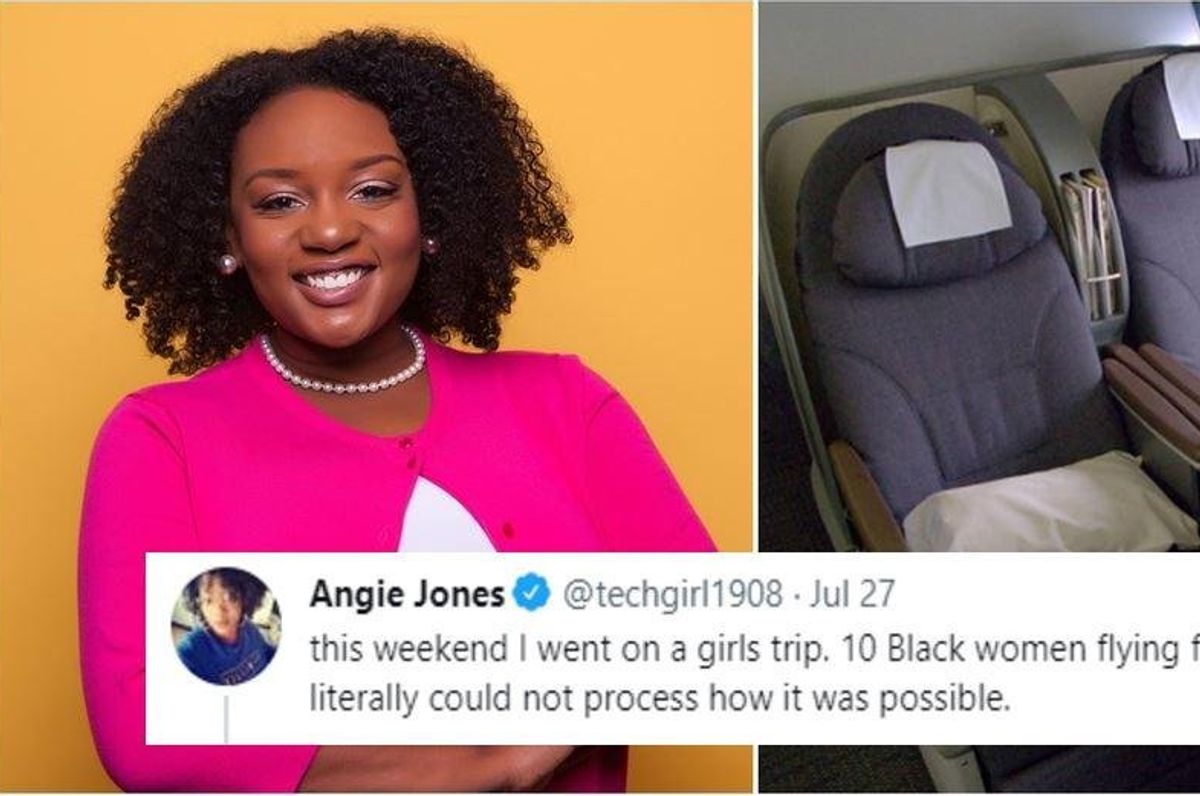10 Black women bought first-class airplane tickets, and it revealed a lot about race in the U.S.
"Are they a high class of people than I am?"
10 Black women sat in first class on an airplane and it revealed a lot about race in America
Software developer Angie Jones' recent girls' trip revealed that America still has a long way to go regarding race. To most, that's not surprising. But what's unique is how the specific experience Jones and her friends went through revealed the pervasive way systemic racism still runs through our culture.
Jones is the Senior Director of Developer Relations at Applitools, holds 26 patented inventions in the United States of America and Japan, and is an IBM Master Inventor.
On July 27, she tweeted about a flight she took with nine other Black women, and they all sat in first class. "People literally could not process how it was possible," she wrote. "Staff tried to send us to regular lines. Passengers made snide remarks. One guy even yelled 'are they a higher class of people than I am?!'"
Jones and her friends were the targets of racism that ranged from the seemingly unconscious — people who assumed that Black people don't sit in first class — to the blatant — those who were seriously bothered that Black people were being treated as having a higher status.
It's interesting that she didn't mention anyone saying "good for you" for succeeding in a world that often holds people of color back. Instead, she was greeted with incredulity and jealous rage.
There are a lot of white people who can't stand the idea of a Black person being elevated above them. It's disturbing that there are still some who will admit it publicly.
Jones' tweets inspired a lot of people to share their stories about the racism they've experienced while flying first class.
I’m brown and this happened to me. I had enough credits to upgrade my flight from SFO to YYZ to biz class. Standing the priority boarding queue a white man behind me told me I may be in the wrong queue. Showed him my boarding pass, aisle seat at row 1. He shut up quick.
— Marino Wijay 🇨🇦 (@virtualized6ix) July 28, 2021
Jones' tweets also angered some people to the point that they denied her story. She responded, "To those saying I'm lying, you're a huge part of the problem," she wrote. "You tell yourself a notable person is lying (for what reason, I cannot figure out) before you believe there are actual racists in...America."
One Twitter user gave the perfect retort to the person who asked, "Are they a higher class of people than I am?!"
The sight of 10 affluent women of color was upsetting to some, probably because it upset their sense of racial hierarchy. To those who have the ingrained feeling that white people should always be above Black people, it had to be a shock to the system. Especially when they are sitting in economy and the Black women are in first class. To those who harbor racial resentment, they probably had to confront their own feelings of insecurity when seeing that these Black women have been able to succeed in a world where they're supposed to be on the bottom rung of the social ladder.
This article originally appeared three years ago.

